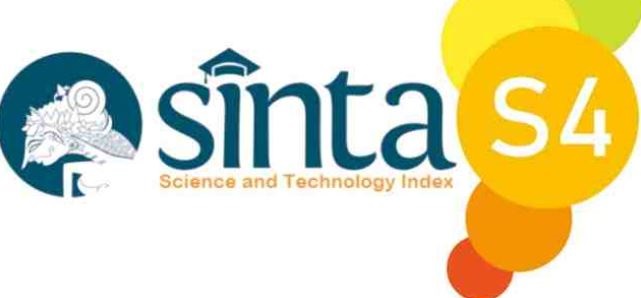Contribution of Coach Social Support to Athletes Peak Performance After Major Injury
 ),
), (1) Universitas Negeri Padang
 Corresponding Author
Corresponding Author
Copyright (c) 2021 Prima Aulia
DOI : https://doi.org/10.24036/rapun.v12i2.115810
Full Text:
 Language : en
Language : en
Abstract
This research is motivated by the results of previous research on the factors that influence the peak performance of athletes after severe injury, where there are five factors, namely experiencing a serious injury, namely the self-confidence factor, serious factors in training, the coach's social support factor, time / place disorientation factor, and factors focus. Of the five factors, four factors originate from the athlete himself, while one factor comes from outside the athlete, namely the coach's social support factor. Therefore, the researcher is interested in examining how much the contribution of this coach's social support to the peak performance of athletes after severe injury. After analyzing the data, it was found that there was a positive correlation between Trainer Social Support and Peak Performance with R = 0.486 with a significance level (sig 2 tailed) of 0.000. This means that the greater the coach's social support, the better their peak performance will beFurthermore, the results of the R Square of these two variables show a number of 0.237 which means that the social support of the coach has a contribution of 23.7% to restore peak performance of athletes after major injuries, while 76.3% is influenced by other factors not examined.
Keywords
References
Adnan, R. M. (2014, Juni 1). Sejarah hari ini 1 juni cedera berat Boaz Solossa 2007. Retrieved from: https://www.goal.com/id/news/1387/nasional/2014/06/01/4853268/sejarah-hari-ini-1-juni-cedera-berat-boaz-solossa-2007.
Andi, Saipul & Aulia, Prima (2019) Kontribusi Dukungan Sosial Pelatih Terhadap Kecemasan Bertanding Atlet Pencak Silat Di Bukittinggi. Padang: Jurnal Riset Psikologi, 3.
Charles, P. (2016). Komunikasi Interpersonal antara Pelatih dan Atlet Bulutangkis dalam Meningkatkan Prestasi pada Dinas Pemuda dan Olahraga Provinsi Riau. Jom Fisip, 3(2).
Fajriningtyas. C. (2016, Mei 31). Kisah Sony Dwi Kuncoro dan Gding Safitri: Cinta dari tepi lapangan. Retrieved from: https://www.femina.co.id/true-story/kisah-sony-dwi-kuncoro-gading-safitri-cinta-dari-tepi-lapangan.
Fernandi, I.D & Jannah, M. (2013). Hubungan persepsi komunikasi interpersonal pelatih-atlet terhadap motivasi berprestasi pada atlet hoki. Character, 1 (2).
Gonsaga, A. (2017, Desember 18). Fakta tentang Ricardo Kaka. Retrieved from: https://bola.kompas.com/read/2017/12/18/20260078/fakta-tentang-ricardo-kaka
Pradana, M. (2018, Februari 25). Eduardo da Silva dan mimpi yang berantakan. Retrieved from : https://football-tribe.com/indonesia/2018/02/25/eduardo-da-silva-dan-mimpi-yang-berantakan/.
Satiadarma,M.P.(2000). Dasar-Dasar Psikologi Olahraga. Jakarta: Pustaka Sinar Harapan
Sport Injury Bulletin. (2010).
Sugiyono (2013). Metodologi penelitian kuantitatif, kualitatid dan R&D. Bandung: Alfabeta.
Wibowo, H. (1995). Pencegahan dan penatalaksanaan cedera olahraga. Jakarta: Buku Kedokteran
 Article Metrics
Article Metrics
 Abstract Views : 285 times
Abstract Views : 285 times
 PDF Downloaded : 113 times
PDF Downloaded : 113 times
Refbacks
- There are currently no refbacks.
Copyright (c) 2021 Prima Aulia

This work is licensed under a Creative Commons Attribution-NonCommercial 4.0 International License.






